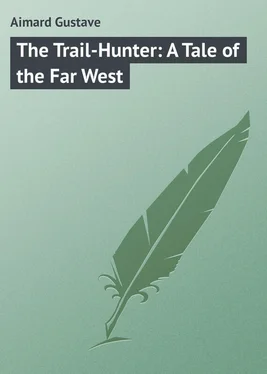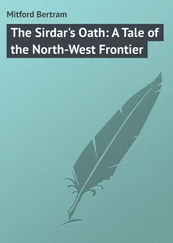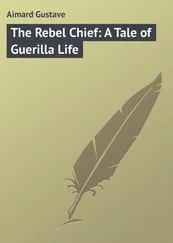Gustave Aimard - The Trail-Hunter - A Tale of the Far West
Здесь есть возможность читать онлайн «Gustave Aimard - The Trail-Hunter - A Tale of the Far West» — ознакомительный отрывок электронной книги совершенно бесплатно, а после прочтения отрывка купить полную версию. В некоторых случаях можно слушать аудио, скачать через торрент в формате fb2 и присутствует краткое содержание. Жанр: foreign_prose, на английском языке. Описание произведения, (предисловие) а так же отзывы посетителей доступны на портале библиотеки ЛибКат.
- Название:The Trail-Hunter: A Tale of the Far West
- Автор:
- Жанр:
- Год:неизвестен
- ISBN:нет данных
- Рейтинг книги:3 / 5. Голосов: 1
-
Избранное:Добавить в избранное
- Отзывы:
-
Ваша оценка:
- 60
- 1
- 2
- 3
- 4
- 5
The Trail-Hunter: A Tale of the Far West: краткое содержание, описание и аннотация
Предлагаем к чтению аннотацию, описание, краткое содержание или предисловие (зависит от того, что написал сам автор книги «The Trail-Hunter: A Tale of the Far West»). Если вы не нашли необходимую информацию о книге — напишите в комментариях, мы постараемся отыскать её.
The Trail-Hunter: A Tale of the Far West — читать онлайн ознакомительный отрывок
Ниже представлен текст книги, разбитый по страницам. Система сохранения места последней прочитанной страницы, позволяет с удобством читать онлайн бесплатно книгу «The Trail-Hunter: A Tale of the Far West», без необходимости каждый раз заново искать на чём Вы остановились. Поставьте закладку, и сможете в любой момент перейти на страницу, на которой закончили чтение.
Интервал:
Закладка:
This cabin was divided into three compartments: the one to the right served as the bedroom of the two females, while the men slept in the one to the left. The central compartment, furnished with worm-eaten benches and a clumsily-planed table, was at once keeping room and kitchen.
It was late: the squatters, assembled round the fire, over which a huge pot was boiling, were silently awaiting the return of Red Cedar, who had been absent since the morning. At length, a horse's hoofs sounded sharply on the detritus collected for years on the floor of the forest, the noise grew gradually nearer, the horse stopped in front of the jacal, and a man made his appearance. It was Red Cedar. The men slowly turned their heads toward him, but did not otherwise disturb themselves, or address a syllable to him.
Ellen alone rose and embraced her father affectionately. The giant seized the girl in his nervous arms, raised her from the ground, and kissed her several times, saying in his rough voice, which his tenderness sensibly softened, —
"Good evening, my dear."
Then he put her down on the ground again, and not troubling himself further about her, fell heavily on a bench near the fire, and thrust his feet toward the fire.
"Come, wife," he said, after the expiration of a moment, "the supper, in the fiend's name! I have a coyote's hunger."
The wife did not let this be repeated. A few moments later an immense dish of frijoles , with pimiento, smoked on the table, with large pots of pulque. The meal was short and silent, the four men eating with extreme rapacity. So soon as the beans had disappeared Red Cedar and his sons lit their pipes, and began smoking, while drinking large draughts of whiskey, though still not speaking. At length Red Cedar took his pipe from his lips, and hit the table sharply, while saying in a rough voice, —
"Come, women, decamp! You have nothing more to do here. You are in our way, so go to the deuce!"
Ellen and her mother immediately went out, and entered their separate apartment. For a few minutes they could be heard moving about, and then all became silent again.
Red Cedar made a sign, and Sutter rose and gently put his ear to the parting board. He listened for a few moments while holding his breath, and then returned to his seat, saying laconically, —
"They are asleep."
"Quick, my whelps!" the old squatter said in a low voice. "We have not a minute to lose: the others are expecting us."
A strange scene then occurred in this mean room, which was merely illumined by the expiring light of the hearth. The four men arose, opened a large chest, and produced from it various objects of strange shapes – leggings, mittens, buffalo robes, collars of grizzly bear claws; in a word, the complete costumes of Apache Indians.
The squatters disguised themselves as redskins; and when they had put on their garments, which rendered it impossible to recognise them, they completed the metamorphosis by painting their faces of different colours.
Assuredly the traveller whom accident had brought at this moment to the jacal would have fancied it inhabited by Apaches or Comanches.
The garments which the squatters had taken off were locked up in the chest, of which Red Cedar took the key; and the four men, armed with their American rifles, left the cabin, mounted their horses, which were awaiting them ready saddled, and started at full gallop through the winding forest paths.
At the moment they disappeared in the gloom Ellen stood in the doorway of the cabin, took a despairing glance in the direction where they had gone, and fell to the ground murmuring sadly, —
"Good Heaven! What diabolical work are they going to perform this night?"
CHAPTER VII
THE RANGERS
On the banks of the Rio San Pedro, and on the side of a hill, stood a rancheria composed of some ten cabins, inhabited by a population of sixty persons at the most, including men, women and children. These people were Coras Indians, hunters and agriculturists, belonging to the Tortoise tribe. These poor Indians lived there on terms of peace with their neighbours, under the protection of the Mexican laws. Quiet and inoffensive beings, during the nearly twenty years they had been established at this place they had never once offered a subject of complaint to their neighbours, who, on the contrary, were glad to see them prosper, owing to their gentle and hospitable manners. Though Mexican subjects, they governed themselves after their fashion, obeying their caciques, and regulating in the assembly of their elders all the difficulties that arose in their village.
On the night when we saw the squatters leave the cabin in disguise, some twenty individuals, armed to the teeth and clothed in strange costumes, with their faces blackened so as to render them unrecognizable, were bivouacked at about two leagues from the rancheria, in a plain on the river's bank. Seated or lying round huge fires, they were singing, laughing, quarrelling or gambling with multitudinous yells and oaths. Two men seated apart at the foot of an enormous cactus, were conversing in a low tone, while smoking their husk cigarettes. These two men, of whom we have already spoken to the reader, were Fray Ambrosio, chaplain to the Hacienda de la Noria, and Andrés Garote, the hunter.
Andrés was a tall, thin fellow, with a sickly and cunning face, who draped himself defiantly in his sordid rags, but whose weapons were in a perfectly good condition.
Who were the men causing this disturbance? They were "rangers," but this requires explanation.
Immediately after each of the different revolutions which have periodically overturned Mexico since that country so pompously declared its independence, the first care of the new president who reaches power is to dismiss the volunteers who had accidentally swollen the ranks of his army, and supplied him the means of overthrowing his predecessor. These volunteers, we must do them the justice of allowing, are the very scum of society, and the most degraded class human nature produces. These sanguinary men, without religion or law, who have no relations or friends, are an utter leprosy to the country.
Roughly driven back into society, the new life they are forced to adopt in no way suits their habits of murder and pillage. No longer able to wage war on their countrymen, they form free corps, and engage themselves for a certain salary, to hunt the Indios Bravos – that is to say, the Apaches and Comanches – who desolate the Mexican frontiers. In addition to this, the paternal government of North America in Texas, and of Mexico in the States of the Confederation, allots them a certain sum for each Indian scalp they bring in.
We do not fancy we are saying anything new in asserting that they are the scourge of the colonists and inhabitants, they plunder shamelessly in every way when they are not doing worse.
The men assembled at this moment on the banks of the Rio San Pedro were preparing for a war party – the name they give to the massacres they organise against the redskins.
Toward midnight Red Cedar and his three sons reached the rangers' camp. They must have been impatiently expected, for the bandits received them with marks of the greatest joy and the warmest enthusiasm. The dice, the cards, and botas of mezcal and whiskey were immediately deserted. The rangers mounted their horses, and grouped round the squatters, near whom stood Fray Ambrosio and his friend Andrés Garote.
Red Cedar took a glance round the mob, and could not repress a smile of pride at the sight of the rich collection of bandits of every description whom he had around him, and who recognised him as chief. He extended his arm to command peace. When all were silent the giant took the word.
"Señores caballeros," he said, in a powerful and marked voice, which made all these scamps quiver with delight at being treated like honest people, "the audacity of the redskins is growing intolerable. If we let them alone they would soon inundate the country, when they would end by expelling us. This state of things must have an end. The government complains about the few scalps we supply; it says we do not carry out the clauses of the agreement we have formed with it; it talks about disbanding us, as our services are useless, and therefore burdensome to the republic. It is our bounden duty to give a striking denial to these malevolent assertions, and prove to those who have placed confidence in us that we are ever ready to devote ourselves to the cause of humanity and civilisation. I have assembled you here for a war party, which I have been meditating for some time, and shall carry out this night. We are about to attack the rancheria of the Coras, who for some years past have had the impudence to establish themselves near this spot. They are pagans and thieves, who have one hundred times merited the severe chastisement we are about to inflict on them. But I implore you, señores caballeros, display no mistaken pity. Crush this race of vipers – let not one escape! The scalp of a child is worth as much as that of a man; so do not let yourselves be moved by cries or tears, but scalp, scalp to the end."
Читать дальшеИнтервал:
Закладка:
Похожие книги на «The Trail-Hunter: A Tale of the Far West»
Представляем Вашему вниманию похожие книги на «The Trail-Hunter: A Tale of the Far West» списком для выбора. Мы отобрали схожую по названию и смыслу литературу в надежде предоставить читателям больше вариантов отыскать новые, интересные, ещё непрочитанные произведения.
Обсуждение, отзывы о книге «The Trail-Hunter: A Tale of the Far West» и просто собственные мнения читателей. Оставьте ваши комментарии, напишите, что Вы думаете о произведении, его смысле или главных героях. Укажите что конкретно понравилось, а что нет, и почему Вы так считаете.












